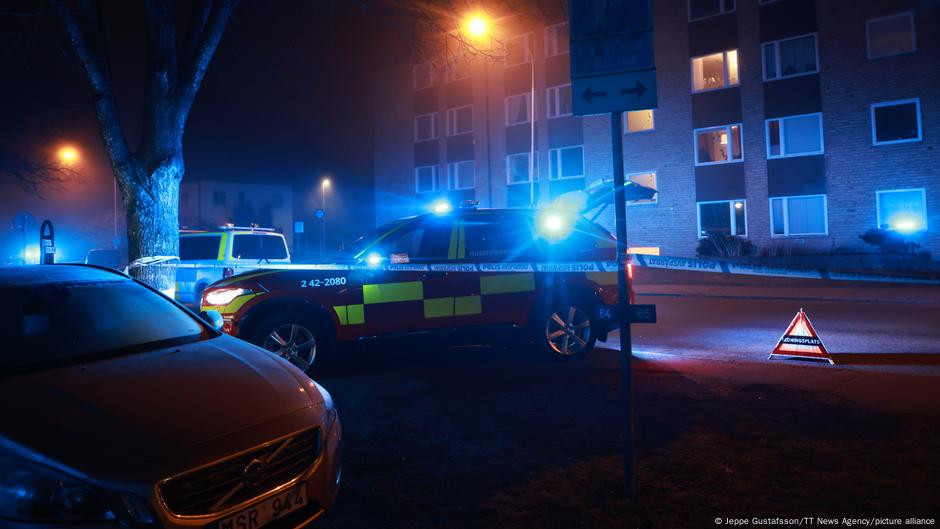In September, Prime Minister Ulf Kristersson announced plans to lower age of criminal responsibility from 15 to 13 for the most serious crimes, including murder and aggravated bombing.
The reform is a response to a surge in deadly gang violence. Police say criminal networks increasingly recruit children to carry out shootings and deliver weapons, as minors under 15 cannot be prosecuted.
The government in had previously announced the creation of special detention units for 15- to 17-year-olds in Swedish prisons. Under the new proposal, the plan is being expanded to include youth-prison units for 13- to 14-year-olds, too. Youth offenders could already start being sent to these detention facilities as soon as next summer, according to the Swedish Justice Ministry.
The government argues the change will close a loophole exploited by gangs. But legal experts, child-rights organizations and social workers warn that lowering the threshold will not deter crime and may undermine rehabilitation.
The bigger picture: An EU of differences
Europe’s minimum ages of criminal responsibility vary dramatically — from 10 years in to 16 in Portugal and Luxembourg.
Despite the differences, all countries run separate juvenile justice systems for under-18s, where the focus is meant to be on education and rehabilitation rather than punishment. Yet the line between protecting and prosecuting minors has increasingly blurred as political debates harden around youth crime.
In countries with higher age limits, such as Finland or Portugal, the emphasis is firmly on social reintegration. Elsewhere, growing concern over youth involvement in violent crime has fueled calls to toughen the rules — a trend now visible in Sweden and Germany, for example.
Germany: Pressure to get tougher
Germany’s criminal law sets the age of responsibility at 14. Offenders aged 14-17 are tried in juvenile courts, which emphasize rehabilitation, community service and counseling over prison sentences.
Members of Chancellor Friedrich Merz’s conservative CDU as well as far-right politicians, however, to 12, citing . Federal crime statistics show that the number of child suspects in violent crimes increased by 11.3% in 2024, though levels remain far below those of the early 2000s.
Just like in Sweden, child rights advocates and legal experts argue against lowering the age limit. Some have called to first gather research on whether the move would lower the number of youth committing crimes at all, and what impact it would have on children.
So far, the German government has shown little appetite for change, sticking with a rehabilitation-first approach that has long shaped its juvenile-justice philosophy. But the debate has reappeared repeatedly, and Sweden’s decision to lower its age limit could present new inspiration to conservative lawmakers.
Ireland: Europe’s lowest threshold
Ireland has the lowest age of criminal responsibility in the EU. Under the Children Act, most minors become liable at 12, but for serious crimes such as murder, manslaughter or rape, prosecution is possible from the age of 10.
The policy has drawn criticism from rights groups, including and the , which recommend a minimum age of at least 14. Campaigners in Ireland have urged lawmakers to raise the threshold, arguing that the current law runs counter to modern child protection standards.
The Irish government defends the framework, pointing to specialized juvenile courts and diversion programs that focus on education and restorative justice. Still, with international pressure mounting, a review of the legislation is being discussed.
Why Denmark changed course
offers a cautionary tale. In 2010, the center-right government lowered the criminal-responsibility age from 15 to 14, hoping to stem youth crime. Two years later, a new government reversed the decision. Studies found no reduction in offenses among 14-year-olds. It also found evidence that early incarceration increased reoffending.
For many in Brussels, it’s a reminder that punitive reforms may play well politically, but rarely deliver lasting results.
Across the EU, the question of how young is too young to be punished remains politically charged. Sweden’s proposal fits a wider trend toward tougher rhetoric on youth crime — yet research like a 2025 study out of Denmark suggests that early criminalization can make reintegration harder. Researchers in the US too found that early juvenile incarceration dimishes positive development of children and often has long-term negative effects.
As EU countries weigh deterrence against rehabilitation, the real challenge may lie not in how low the age limit goes, but how societies help vulnerable children avoid crime altogether.
Edited by: Carla Bleiker
The post Sweden to jail 13-year-olds: Will others in the EU follow? appeared first on Deutsche Welle.




